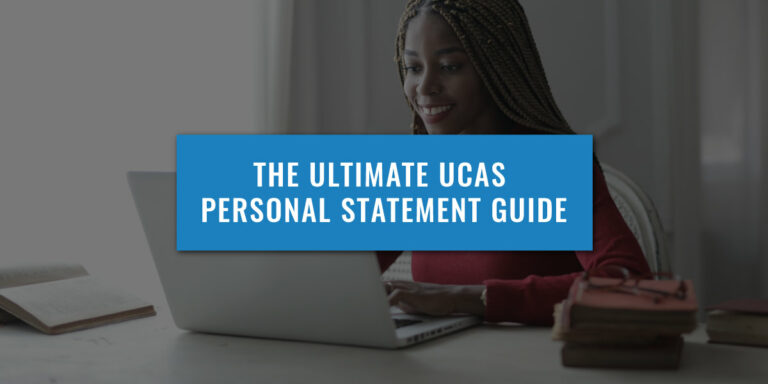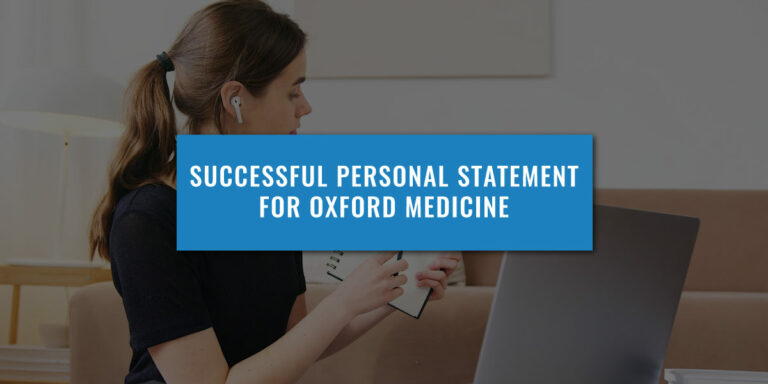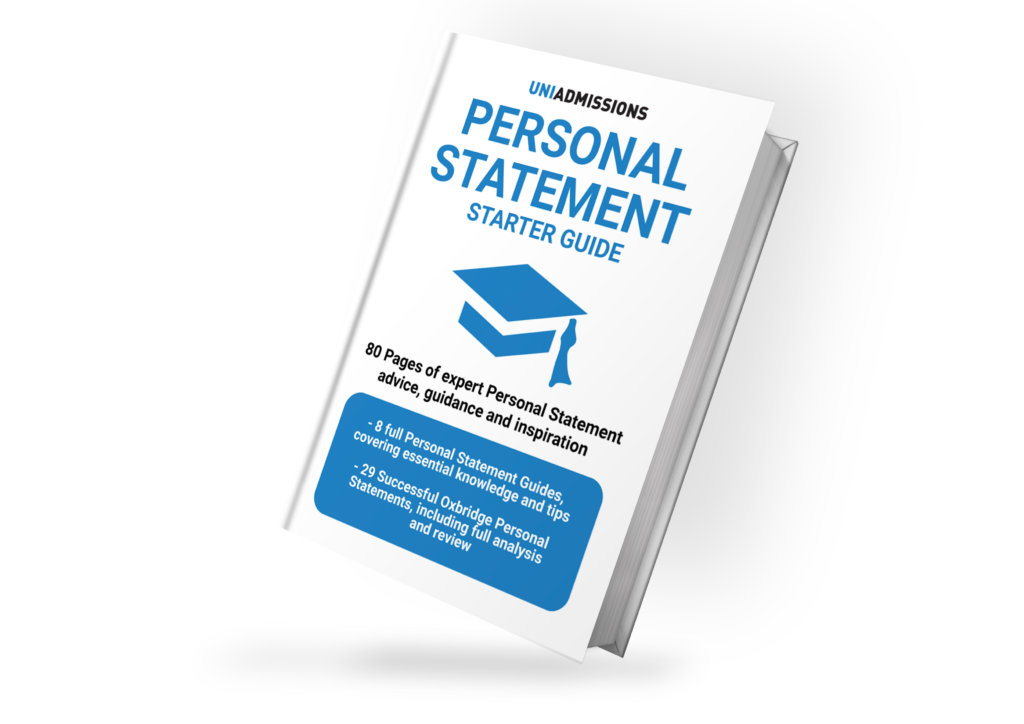Welcome to our popular Personal Statement series where we present a successful Personal Statement, and our Oxbridge Tutors provide their feedback on it.
Today, we are looking through a Psychological and Behavioural Sciences (PBS) applicant’s Personal Statement that helped secure a place at Cambridge University. The PBS Course at Cambridge gives you the opportunity to study cognitive, social, developmental and biological psychology within the broader context of the behavioural sciences.
Read on to see how this candidate demonstrates their interest in the behavioural sciences.
NEW PERSONAL STATEMENT FORMAT
As of 2025, UCAS Personal Statements will be presented with a new three-question format. Be aware that the Personal Statement featured in this guide was written in the previous free-form format. Despite this, the example will still be beneficial to read as the content included remains the same as what you should aim to write in your own work.
When reading this example, think about which question each paragraph answers. To learn more about the Personal Statement changes, read our dedicated guide to the new Personal Statements here.
Here’s a breakdown of the Personal Statement (the applicant uses most of the 4,000 characters available):
CHARACTERS
3,991
WORDS
631
SUCCESSFUL?
5/5
The universities this candidate applied to were the following:
CAMBRIDGE
OFFER
EDINBURGH
OFFER
UCL
OFFER
GLASGOW
OFFER
ST ANDREWS
OFFER
Enrolling on our Oxbridge Psychology comprehensive Programme will give you access to Personal Statement redrafts.
Your tutor will give you actionable feedback with insider tips on how to improve and make your Personal Statement Oxbridge quality for the best chances of success.
Psychological and Behavioural Sciences
Personal Statement
”Such a shame she will not study medicine!” I heard several times as my interests finally steered into a university degree. Having grown up with my mum – a psychologist, from primary school I constantly questioned human behaviour. And although parents from small towns dream of their children becoming doctors, phenomena that I saw in my surroundings, like eating disorders or extreme shyness, relentlessly attracted my attention. I knew I needed to pursue an intense educational path to gain the depth of knowledge I desired.
My exceptional curiosity led me to follow the IBO program. Thanks to its curriculum, I relished the opportunity to extend my private research and put it into academic framework. While working independently on my Extended Essay “Should introversion be treated?” I discovered Susan Cain and her book “Quiet: The Power of Introverts”. My puzzle of introversion developed into educated distinction for introversion, social anxiety disorder and behavioural inhibitions. In addition, the EE helped me understand the role of biology, encouraging me to start an online course “Introduction to psychology” taught by the University of Toronto. My curiosity still reaches far beyond these introductions and I am looking forward to studying details of brain lobes during biological modules of the course. Moreover, since the subject of eating disorders is too sensitive to be researched in high school, I cannot wait to approach it at an academic level and discuss it with world class experts.
My in-depth, intense processing applies not only to theory, but I also appreciate the material world we live in. Hence, to step out of my comfort zone and into reality, I attended a Business Week program organised by Washington City in Gdansk. My initial function as Vice-President for a business simulation left me with a deep aspiration for a better performance. Therefore, I followed-up Business Week program with an advanced option and became the CEO of my team. Right then I started to appreciate the contribution of every member. I took real pleasure in guiding my team through the processes of marketing, pricing, R&D, production and the construction of a business plan, all of which I understood quickly and precisely thanks to analytical thinking skills I developed during a demanding Maths HL course.
My commitment and eagerness to learn may also be seen by the title of a finalist in the French Language Olympiad, meaning that I reached an advanced level in just two years. Furthermore, I participated in two exchange projects with a Provencal theatre to check my linguistic competencies with native speakers. Although both exchanges were awarded with European Language Label, what counted most was my exceptional chance to explore the French culture inside out. My other interests include French literature, contemporary dancing, horse riding and behavioural economics. The latter led me to the online course organised by the University of Queensland, Australia. The course outlined concepts from Daniel Kahneman’s “Thinking Fast and Slow”, of which planning fallacy and confirmation bias I consider of greatest importance. Moreover, thanks to good time management I constantly look for other initiatives, such as a charity campaign or volunteering in teaching English or organising TriMUN as Deputy Secretary General. During TriMUN I explained to participants how to follow all the diplomatic procedures – those activities made me wonder about different approaches I had to take in order to teach.
I no longer want psychology to remain only an interest of mine; instead, I need dependable academic tools to understand the research already done. As psychology is a relatively new field of science, early starting form Wundt in 1879, there is still space for much more to be done. I believe that a strong scientific background is crucial for building a career involving communicating with people efficiently and helping them function optimally in our complex material world.
For more inspiration, take a look through our other successful Personal Statement analysis articles:
Download our Free Personal Statement Starter Guide
Good Points Of The Personal Statement
This candidate is able to identify a range of ways in which they have developed their interest in their subject area beyond the demands of their current courses of school-level study. They are also able to demonstrate that they have thought clearly and carefully about what kinds of material they might encounter at undergraduate level, and how that intersects with both their current interests and their potential areas of interest in the future. In order to have arrived at these opinions, the candidate has read a range of texts, and is able to utilise their thoughts on these texts in their statement. As such, they draw together various aspects of their academic pursuits in order to fully paint the picture of themselves as a motivated and tenacious academic student.
Bad Points Of The Personal Statement
While the candidate is generally able to express themselves clearly, there are moments where the syntax and exact choices of vocabulary seem slightly stilted, suggesting perhaps a non-native speaker or an unedited statement. This slight lapse in language skill does present areas where the communication level is affected, and therefore puts pressure on the content of the statement as a whole. The statement also relies heavily on anecdotal evidence and does include some slightly uncomfortable generalities. In addition, the candidate would benefit from perhaps adjusting the tone of their moments of personal reflection; the statement has the potential to be read in a way that suggests the writer is arrogant or pompous, and it may well be that this is solely down to word choice rather than intention.
UniAdmissions Overall Score:
★ ★ ★ ☆ ☆
Although this statement illustrates the candidate’s academic fervour, it does also show areas for potential improvement. It would have been beneficial for the statement as a whole had the candidate maintained a clear and developed level of academic prose throughout, and they could have more clearly linked some of their extra-curricular activities to their chosen course of study. In addition, while the candidate ably discusses texts that they have read in preparation for undergraduate study, these discussions could have taken prominence in the statement, over and above the inclusion of more personal or anecdotal material.
This Personal Statement for Psychology is a good example of demonstrating interest. The candidate’s passion is clearly shown which is vital to Admissions Tutors.
Remember, at Cambridge, these Admissions Tutors are often the people who will be teaching you for the next few years, so you need to appeal directly to them.
There are plenty more successful personal statements and expert guides on our Free Personal Statement Resources page.
Our expert tutors are on hand to help you craft the perfect Personal Statement for your Cambridge PBS application.
With our Oxbridge Psychology Premium Programme, we help you craft the perfect Personal Statement, score highly on the TSA and teach you how to Interview effectively.
Discover our Oxbridge Psychology Premium Programme by clicking the button below to enrol and triple your chances of success.








